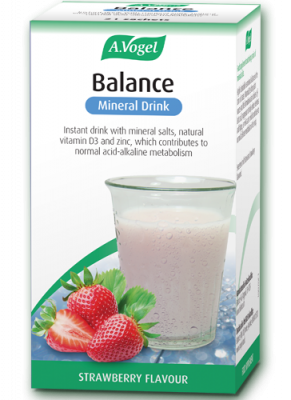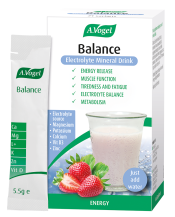Why is vitamin D so important?
Vitamin D is an extremely important nutrient for your health as a whole. It plays a number of crucial roles throughout the body: your immune system, your skin, your muscles and joints and even your digestive system all rely on vitamin D so why, if this vitamin is so vital, are so many people deficient?
Approximately 1 billion people worldwide are deficient in vitamin D and, here in the UK, we could be particularly vulnerable.1 This is because, unlike other nutrients, food is not your body’s main source of vitamin D. Instead, vitamin D is synthesised by our skin when it is exposed to sunlight. This means that, if the weather conditions are not favourable, our intake of vitamin D is going to be inhibited.
This means that many people, especially during winter, have to seek out other sources of the nutrient, either in their diet or by taking supplements. But, how can you tell if your vitamin D levels are low? Below, I’m going to discuss a few of the more common symptoms of vitamin D deficiency and how they can impact your wider health.
What are the symptoms of low vitamin D?

Low immune function
Do you find that you’re constantly being plagued by coughing, wheezing, a runny nose or a sore throat? As I’ve mentioned, vitamin D is very important for your immune system: it helps to activate your T-cells, which are responsible for hunting down viruses and pathogens, and it can help to strengthen your innate immune system.2
Increased inflammation
Inflammation is at the root of so many different health problems, from IBS to skin conditions such as eczema. Unfortunately, if you have low levels of vitamin D, you may find yourself more susceptible to this issue as research has found that vitamin D actually inhibits inflammation.3 Without this nutrient, you could become more prone to inflammatory problems.
Sore muscles and joints
In addition to being an issue for your skin and digestive system, inflammation can also upset your muscles and joints. To make matters worse, though, since vitamin D is so crucial for the absorption of calcium, if you are running low, you may find that your levels of this mineral also dip too. This, in turn, can also affect your joints, leading to aches and pains.
Low mood
Did you know that there are vitamin D receptors in the areas of your brain associated with depression? This has led some experts to theorise that there could be a link between low levels of vitamin D and your mood, as our Mood Advisor Marianna discusses in her blog, ‘Can vitamin D help SAD?’.
Fatigue
If you read my blog, ‘Can vitamin D give you energy?’ you’ll know that research is starting to make the connection between vitamin D and our energy levels. Indeed, fatigue is one of the most common symptoms of vitamin D deficiency, so this is definitely one to keep an eye out for!
Sweats
This is one of the more unusual symptoms, but sweating, particularly from the head, has been associated with low levels of vitamin D. The exact reason why vitamin D deficiency can stimulate this side-effect isn’t well understood yet.
Poor sleep
Low levels of vitamin D can impact your sleep? Apparently so! According to our Sleep Advisor, Marianna, the symptoms of vitamin D deficiency (many of which I’ve just touched on!) can affect how well you sleep at night, thus meaning that you may have to cope with the effects of sleep deprivation on top of everything else!
Slow wound healing
Have you found that your skin isn’t healing as efficiently as usual? Again, this could be due to low levels of vitamin D. Studies have implied that vitamin D could play a role in encouraging the production of new skin cells, while others have linked this particular action back to vitamin D’s influence on inflammation.5
What happens if vitamin D deficiency is left untreated?
You can probably tell, by now, that the consequences of having very low levels of vitamin D can be quite debilitating. What if you leave them untreated, though? Well, if your vitamin D levels fall critically low, it can lead to bone disorders such as rickets or cardiovascular issues such as high blood pressure or even heart disease!
That’s why, if you do suspect that you are low in vitamin D, it’s a good idea to address the deficiency as soon as possible by taking sensible steps to increase your intake.
How can I raise my vitamin D level?
1. Get outside

Sunshine is your main source of vitamin D and you’re not going to find it sitting indoors. Even if the weather is a bit blustery or the temperatures are cold, you should still make a consistent effort to spend some time outdoors, whether it’s a brisk walk to the shops or a jog around your local park. Especially if you are able to bare some skin, this should increase your chances of absorbing the vitamin, ensuring that you are getting a regular intake and reducing the risk of deficiency.
2. Be careful what suncream you use

You might imagine that summer is the perfect time to soak up more vitamin D and you’re absolutely right! However, the summer sun is also associated with UV radiation which can damage your skin, so naturally you’re going to want to take precautions if you’re going to be exposing your skin. The problem is that the chemicals in some suncreams can actually block your absorption of vitamin D!
That’s why you may need to apply a bit more thought when it comes to the type of suncream you’re using – natural is always better, so why not opt for a brand like Green People? It might also help if you allow yourself to spend just a little bit of unprotected time in the sun – between 10-20 minutes depending on how sensitive your skin is.
However, sun protection is still vitally important so don’t skip out on it altogether and make sure you’re re-applying your suncream of choice regularly!
3. Seek out food sources

Although sunlight is our primary source of vitamin D, this nutrient can be found in certain food products. Oily fish, tofu and shiitake mushrooms are just a few rich food sources, but many foods are already fortified with the vitamin, especially vegan alternatives like almond milk. It would be difficult to source all the vitamin D you need from your diet, but it can be a useful tool to consider just to bolster your intake, especially during the winter months!
4. Supplement sensibly

There may be times when supplementing is your best option, but it’s really, really important to remember moderation here! Ideally, our daily intake of vitamin D should be around 10-15mcg a day; however, most supplements contain double, if not triple this amount! This can then place you at risk of getting too much vitamin D, so please bear in mind that more does not always equate to better!
If you want to gently support your vitamin D levels, a nice option could be to try our Balance Mineral Drink. This is primarily indicated for fighting fatigue (a common symptom of vitamin D deficiency!) and it contains a blend of vitamins and minerals, including magnesium, potassium, calcium and vitamin D. In fact, this drink offers 5mcg of the vitamin, an easily absorbable dose that’s excellent for giving your vitamin D levels a nice little nudge.
My Top Tip: Mix one sachet of our Balance Mineral Drink with a glass of water or mingle a smoothie to produce a pleasant-tasting strawberry-flavoured drink that's ideal for fighting fatigue. Mix one sachet of our Balance Mineral Drink with a glass of water or mingle a smoothie to produce a pleasant-tasting strawberry-flavoured drink that's ideal for fighting fatigue.
|
1https://www.ncbi.nlm.nih.gov/pmc/articles/PMC3356951/
2https://www.nhs.uk/news/lifestyle-and-exercise/vitamin-d-immune-system-boost/
3https://www.sciencedaily.com/releases/2012/02/120223103920.htm





 Looking for our products in a store near you?
Looking for our products in a store near you?

